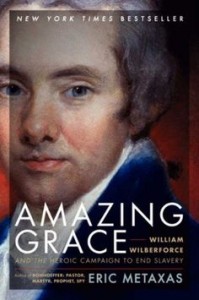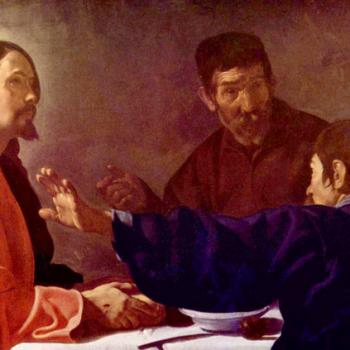This academic year I am serving as Pastoral Director for the Newbigin House of Studies Fellows Program. This is the first in a year-long series of posts in which I will be blogging about the reading that the Fellows are engaging together. You can read more about the Fellows Program here.
If you’ve ever heard people in church bandying about the word “missional,” you can blame Lesslie Newbigin. A missionary to India, he retired to his homeland of England only to find that the homeland had become post-Christian and in as much need of hearing about the Christian faith as the people to whom he had gone three decades before.
Looking at Britain with his missionary mindset, he realized that a rejuvenation of “the pulpit” was not going to be enough to see the Christian take fresh root. The church was going to have to reimagine its calling. People were going to have to imagine the Christian life in fresh ways out in communities, cities, businesses, government. People weren’t going to be attracted into the church buildings anymore, they were going to have to find the Jesus story arresting in the places where they lived, worked, and played every day.
Wilberforce & The Missional Vision
Catching hold of a missional vision is not as easy as it sounds. But a compelling, if daunting, picture of this way of life is captured in the story of William Wilberforce.
While Amazing Grace, by Eric Metaxas, dances the line between history and hagiography (sometimes doing a hokie-pokie like “put your right foot in, take your right foot out” sort of maneuver) it also provides a thoroughgoing case study on the question: What might happen if you don’t leave?
Wilberforce had been exposed to Christian teaching as a child, much to the chagrin of his mother, who saw to it that his Methodist relatives’ influence was stymied as quickly as possible. Throughout his university studies and the early years of his career Christianity was the farthest thing from his mind.
Through a combination of a tremendous natural gifting in oratory and some rather cheeky ambition Wilberforce wound up with a powerful seat in Parliament. He was 24.
It was then that he started to inch toward Christian conviction. And it was a little over a year before he fully embrace Christian faith. It was a change that raised the specter of his leaving Parliament and pursuing what might have been considered a more holy calling. Why not use those extraordinary gifts of oratory to build a church rather than a nation?
But Wilberforce got some good advice. From his friend, William Pitt, the Prime Minister, he received a letter shortly after his conversion.
But forgive me if I cannot help expressing my fear that you are nevertheless deluding yourself into principles which have too much tendency to counteract your own object, and to render your virtues and your talents useless both to yourself and mankind… If a Christian may act in the several relations of life, must he seclude himself for all to become so? Surely the principles as well as the practices of Christianity are simple, and lead not to meditation only but to action.
Wilberforce had withdrawn, unsure of how to meld his new faith with the life he had been living. And his friend attempted to draw him out. What sort of “action” might the Christian faith hold for him? “Don’t render your virtues and your talents useless!” A great and wise warning.
On this score it was probably the advice of John Newton, former slave trader and author of the hymn “Amazing Grace,” that helped Wilberforce see that he could stay the course in Parliament and discover his calling there. (Although on this point Metaxas doesn’t offer any evidence other than asserting that Newton didn’t tell Wilberforce to hang it up and start preaching.)
The short version of the story…












